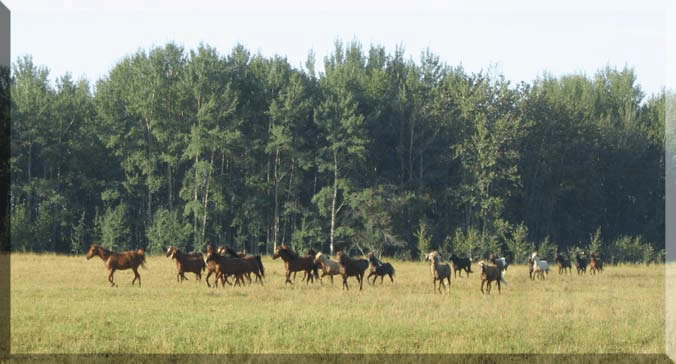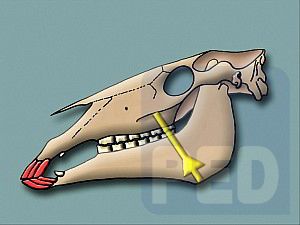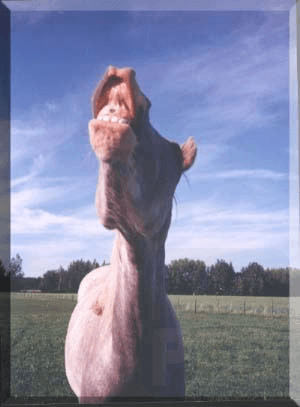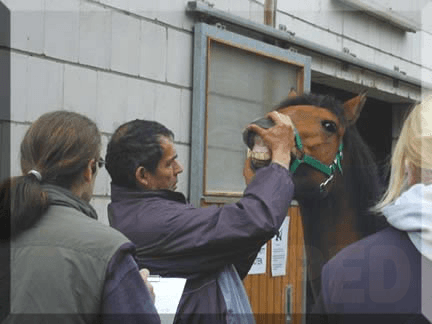
About Horse Dentistry
Through evolution the horse roamed freely. Foraging was its lifestyle. The horse would pick up grit, sand, dirt and other abrasives while grazing. This kept the incisors wearing constantly and maintained the grinding surface of the molars. If sharp edges formed on molar tables, packing of grit and feed helped prevent punctures and lacerations to tongue and cheek areas, at the same time acting as an abrasive to dull the sharp areas. If this self-maintenance failed, the horse would become weak, sick and easy prey for predators.
Domestication of the horse has created many environmental changes. It is now confined to pastures, paddocks, box stalls and even standing stalls over extended periods of time and it is not being allowed to forage for its feed. Most horses are fed hay, cubed feed and pellets, which leaves the incisors unused and free to expose themselves at approximately 3mm per year. Feeding kernel grains such as corn and whole oats causes drastic over-wear of the molars. With the lack of use of the incisors and the overworking of the molars, an imbalance has been created in the oral cavity. This problem can manifest with time unless either a different feeding program is used or dental maintenance procedures are initiated.
Knowing that these problems do exist and chronic situations can be prevented with regular dental care, Louis believes that all domesticated horses have earned the right for an inspection to make sure their mouths function properly. Regular dental care is a necessity for their longevity, health and performance.
While the demand for qualified horse dentists grows, presently there are not enough properly educated horse dentists. In Germany, for example, there is a potential market for some 800 professionals if all horses’ teeth were inspected on a regular basis, but only a relatively small number of horse dentists are offering their services so far. Proper education is a main task. Veterinary medicine at universities covers horse dentistry with only a couple of hours and very little practical training.
Unfortunately, there are no standards in this field of education yet. There is also no enforcing body to regulate the field of equine dentistry, meaning providers with minimum education can practice. For the well-being of the horse, it is therefore of great concern to establish high standards and to enable horse owners to evaluate the quality of dental work.
Learn more about what a responsible horse owner should become aware of and what a horse dentist will be looking for during inspection here. Be sure to have him explain his findings in detail and what procedures he recommends. Know that dentistry is common sense and logic. If there is anything that doesn’t make sense to you, don’t have it done.
“I had attended two equine dentistry seminars at the University and was not satisfied with the practicality of their approach. I also did not receive there any practical training on live animals.”
Angela Losberg, Veterinarian, Reiskirchen, Germany“Louis Pequin excels in equine dentistry and general horse health and is helping to push this time honored trade into the 21st century.”
Marlene Marcotte, Horse Owner, Valleyview, AB, Canada




